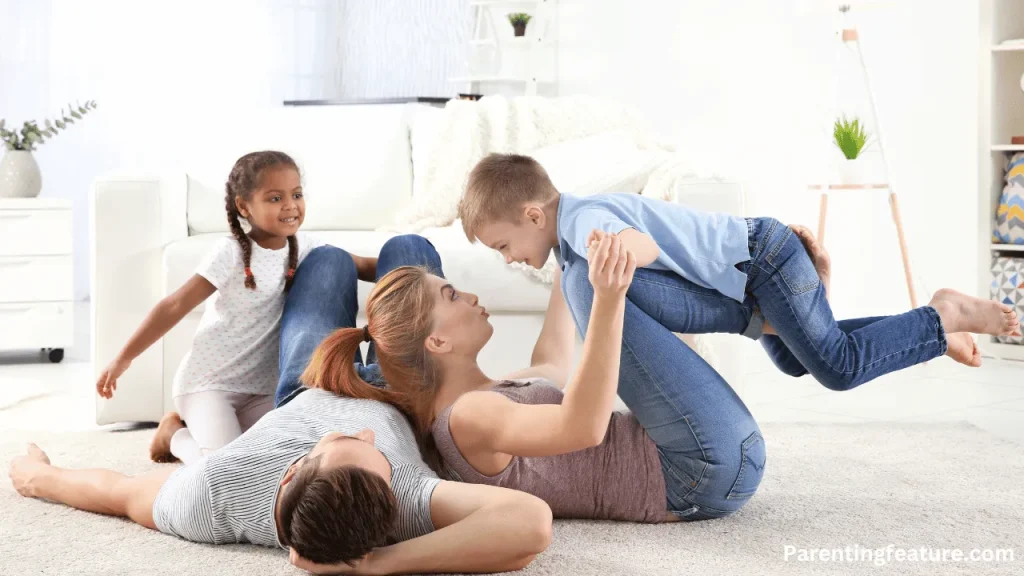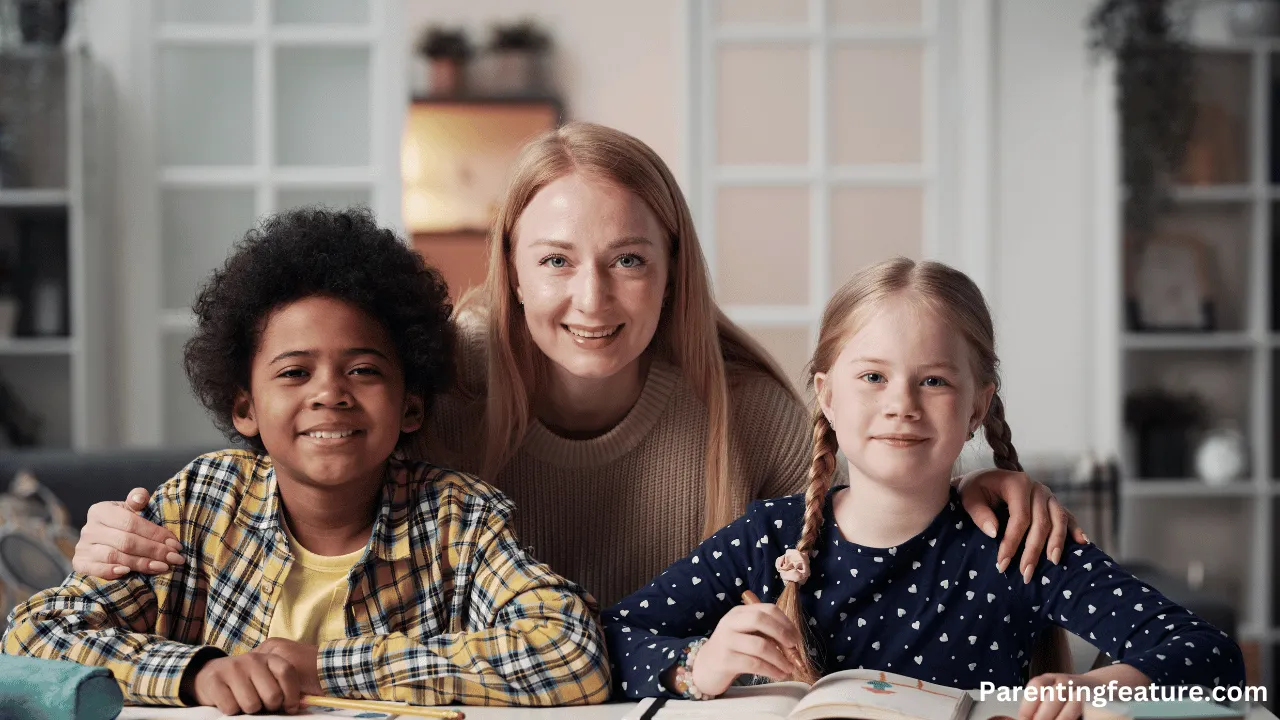Fostering a child is a profoundly life-changing decision that extends beyond traditional parenting, inviting an external individual into the heart of one’s home and family. It is a journey embarked upon by the adults in a household and the entire family unit, including the biological children.
The essence of foster care lies in providing a safe, nurturing environment for children who, for various reasons, cannot live with their biological families.
These children come from diverse backgrounds, each with unique experiences, traumas, and needs. The goal of foster care is to offer these children a semblance of stability and love, sometimes temporarily and other times in preparation for adoption.
The decision to open one’s home and heart to foster children should be a collective family resolution, underlining the critical importance of involving biological children in the conversation.
It’s a dialogue that sets the tone for understanding, empathy, and mutual respect among all family members. This essay delves into the nuanced dynamics of fostering, mainly focusing on its positive and challenging impacts on biological children within the fostering family.
It asserts the thesis that, while fostering can indeed catalyze positive growth and development in biological children, it simultaneously presents a spectrum of potential challenges that necessitate careful preparation, support, and open communication to navigate successfully.
Positive Effects of Fostering on Biological Children
One of the most significant benefits observed in biological children of foster families is developing a profound sense of empathy and compassion.
By sharing their lives with foster siblings, they gain direct insight into the varied and often complex life stories that bring children into foster care.
This exposure broadens their worldview, nurturing a deep-seated understanding and compassion for others who face adversities vastly different from theirs.
Resilience and Adaptability
Fostering teaches biological children the value of resilience and adaptability. As new foster siblings join the family, each with unique behaviors, needs, and personalities, biological children learn to adapt and be flexible.
This ability to adjust to changing circumstances and people serves them in their immediate family environment and equips them with crucial life skills for navigating the wider world.
Enhanced Responsibility
Participation in the care and support of foster siblings often fosters a heightened sense of responsibility among biological children.
Whether it’s through helping with daily routines or offering emotional support, these experiences can accelerate maturity and a sense of duty towards others.
Also read: Is Fostering Children a Job?

Appreciation and Gratitude
Witnessing first-hand the challenges and hardships faced by their foster siblings can lead biological children to develop a deeper appreciation for their circumstances.
This perspective fosters gratitude for the stability and resources they might have previously taken for granted.
Reduced Fear of the Unknown
The diverse backgrounds from which foster siblings come can introduce biological children to various cultures, experiences, and perspectives.
This exposure often reduces fears and misconceptions about the unknown, encouraging a more open and inclusive outlook on life.
Inspiration for the Future
Many biological children of foster families grow up to pursue careers in social work, psychology, and other helping professions. The positive influence of fostering can inspire a lifelong commitment to making a difference in the lives of others.
Also read: How to Start Fostering Children
Potential Challenges for Biological Children
Despite the many positives, fostering can sometimes evoke feelings of jealousy or resentment in biological children.
They may perceive their parents’ attention and resources being divided, underscoring the importance of proactive reassurance and maintaining quality one-on-one time. Here are a few challenges that your biological children may face:
Concerns About Sharing Space and Belongings
Introducing foster children into the home may lead to concerns about sharing personal space and belongings. Addressing these issues requires thoughtful strategies for establishing boundaries and fostering a sense of fairness and respect among all children.
Behavior Changes in Foster Children
Foster children may exhibit challenging behaviors due to their past traumas and experiences. Biological children need age-appropriate explanations to understand these behaviors, ensuring they feel secure and informed.
Challenging Emotions Due to Separation
The temporary nature of foster care means that foster children may leave the family. This can cause biological children to experience a sense of loss and grief. Acknowledging these feelings and discussing the temporary aspect of fostering are essential steps in supporting them through these transitions.
Disruption of Family Routines
The arrival of a foster child can lead to changes in daily routines and dynamics. Families must be flexible and work together to adapt to these changes, ensuring that the needs of all children are met in a balanced manner.
Tips for Supporting Biological Children During the Fostering Process
From the outset, involving biological children in discussions about fostering is crucial. Transparent, honest conversations set realistic expectations and help children feel included and valued in decision-making.
Acknowledge and Validate Feelings
Active listening and validation of biological children’s emotions are essential. Acknowledging their feelings, whether concerns seem minor or significant, fosters an environment of trust and support.
Maintain Quality Time
Dedicated one-on-one time with each biological child helps mitigate feelings of neglect or secondary importance, ensuring they feel loved and valued individually.
Age-appropriate Explanations
It is crucial to explain the purpose and processes of foster care in an age-appropriate manner, especially regarding the behaviors and temporary stay of foster children.
Utilize Support Networks
Leveraging support from fostering agencies, extended family, and professional therapists can provide additional layers of support for both parents and biological children.
Encourage Participation
Involving biological children in age-appropriate aspects of caring for foster siblings fosters a sense of inclusion and responsibility.
Praise and Celebrate Resilience
Recognizing and celebrating biological children’s adaptability, kindness, and resilience reinforces positive behaviors and attitudes toward fostering.
Conclusion
Fostering presents unique opportunities and challenges for biological children within the fostering family. The benefits—from enhanced empathy and resilience to a deeper appreciation for one’s circumstances—can profoundly shape a child’s character and worldview.
However, the journey also presents potential hurdles, including jealousy, concerns about sharing, and the emotional impact of separation. Addressing these challenges requires a commitment to preparation, open communication, and robust support systems.
By navigating these dynamics thoughtfully, fostering can indeed be a rewarding experience for all family members, fostering growth, understanding, and resilience in everyone involved.
FAQs
What is foster care, and why is it needed?
Foster care is a system designed to provide a temporary home for children who are unable to live with their biological families due to safety concerns, parental inability, or other circumstances that prevent proper care. It aims to offer these children stability, safety, and nurturing until they can return to their original home or find an alternative permanent solution.
How does fostering affect the biological children in the family?
Fostering can have both positive effects and potential challenges on biological children. Positively, it can foster empathy, resilience, responsibility, and gratitude, reduce fear of the unknown, and inspire future career paths. However, challenges may include feelings of jealousy or resentment, concerns about sharing space and belongings, behavior changes in foster children, challenging emotions due to separation, and disruption of family routines.
Why is it essential to involve biological children in the decision to foster?
Involving biological children in decision-making ensures they feel valued and respected within the family. It helps set realistic expectations, fosters an environment of open communication, and prepares them for the changes and challenges that come with fostering, thereby supporting a smoother transition for all family members.
What strategies can help manage jealousy or resentment from biological children?
Proactive strategies include ensuring quality one-on-one time with each biological child, openly discussing feelings and concerns, establishing clear boundaries and fairness regarding space and belongings, and involving them in the caregiving process to foster a sense of responsibility and inclusion.
How can parents prepare their biological children for the arrival of a foster child?
Preparation involves open and honest conversations about fostering, why the family has chosen to encourage, what changes might occur, and how the biological child can be involved. It’s also important to discuss the potential temporary nature of fostering and provide age-appropriate explanations for any behavioral issues that may arise.








